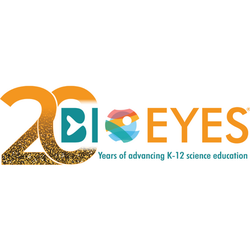- Home
- Outreach
- Office of Outreach, Education, & Research (OER)
- Get Involved
Get Involved

Through partnerships with schools, universities, and nonprofit organizations, our staff and researchers teach K-16 students in the Philadelphia area scientific skills and provide them with exciting and accurate information about research and medicine.
Does your proposal require a community or education component, or do you want to have a competitive, well-rounded proposal? Are you preparing an NIH P50 or P30 or an NSF grant? If so, our office can help you.
Dr. Shuda and her staff can assist you with:
- Project development and evaluation
- Proposal narrative and budget planning
- Project implementation
- Recruiting and maintaining participants
- Evaluation and research plans, including obtaining IRB approvals
- Completing state-mandated clearances
- Training for faculty and staff on science communication and mentoring
- Offering opportunities to plug into existing BI events
Check out our current successful collaborations and supported projects:
PENN CENTER FOR STUDY OF EPIGENETICS IN REPRODUCTION, PI: Bartolomei -5P50HD068157-10
Projects:
a. Project BioEYES, our live classroom zebrafish experiments reach over 3000 Philadelphia students annually and will launch an Epigenetics module for local high school classrooms. Replication of Project BioEYES is successfully underway at Virginia Commonwealth University, Boston Children’s Hospital and Harvard University, and the University of Miami.
b. The Penn Academy for Reproductive Sciences (PARS), our four-day research clinic for high school students that focuses on the science behind our bodies and careers in research and clinical medicine hosted over 175 local students since 2010.
PENN RESOURCE-BASED CENTER TO SUPPORT AND TRANSLATE SKIN DISEASES RESEARCH, PI Grice – 2P30AR069589-06
Project:
The Penn Academy for Skin Health (PASH) a four-day research clinic focused on educating local high school students about dermatology research and clinical care hosted a 17 high school students since Spring 2017.
SIGNALING MECHANISMS THAT REGULATE ATTRACTIVE AXON GUIDANCE AT THE CNS MIDLINE, PI: Bashaw 1853719
Project:
DrosoPHILA brings high school science teachers to the lab for six-week paid summer research position to learn about our work and to design curriculum for use in the classroom. The curriculum is then brought into the classrooms by lab members and the outreach team.
Resource-based Center for Musculoskeletal Disorders Research, PI: Soslowsky 2-P30-AR-069619-06
Project:
Learning on a Limb is a half day research experience for local high school students to explore research at Penn’s Center for Musculoskeletal Disorders (PCMD) as well as host six summer high school researchers through the OER summer Internship program.
CAREER: ENGINNERING THERMAL BIOSENSORS FOR REMOTE CONTROL OF MAMMALIAN CELLS, PI: Bugaj 2145699
Project:
To develop a high school curriculum and support one summer high school researcher through the OER summer Internship program.

Contact Dr. Shuda:
- Jamie.shuda@pennmedicine.upenn.edu
- 215-746-7679
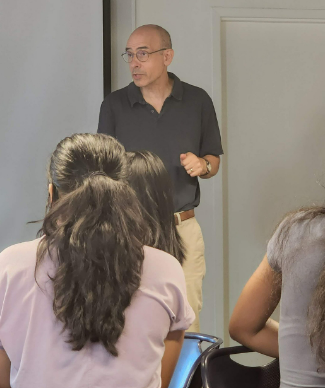
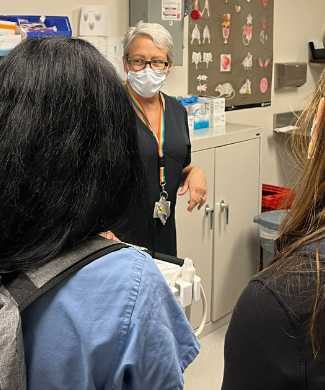
Volunteers help us share science in the Philadelphia community. We are always looking for faculty, postdocs, and Penn students who want to contribute to our learning experiences. Volunteering is a great way to broaden the reach of your research and enhance your communication skills while making a difference.
Here are some ways to volunteer:
- BioEYES is a week-long lab experience that takes place in the classroom. Using live zebrafish, students learn about development, genetics, research animals (and related careers), and how to use a microscope. There are grade specific versions of the lab, touching on these topics in developmentally appropriate ways. We run this program almost every week, at a different elementary, middle, or high school, from September-June. Volunteers are needed in-person to assist with classroom presentations, virtually to give “Meet a Scientist” talks via zoom, and at Penn to help prepare mating pairs for classroom presentations.
- DrosoPHILA is a program that uses Fruit Flies as model organisms in class to communicate principles of Biology such as data collection and analysis, the scientific process, and mutations. The program includes two experiments that are designed to be adjustable for various grade levels. The program follows a three-day format and is active from September to December, and then again from March to May. Volunteers are needed to be a visiting scientist and help prepare materials for modules.
- Summer Internship Program is a 6 week research experience for High School aged students. The students participate in lab activities and carry out tasks to contribute to the labs work during their time in the lab. Volunteers are needed to mentor the students during the 6 weeks insuring that they are actively engaged in the work of the lab and assisting with presenting their work at a closing poster presentation.
Step 1: Sign Up to Volunteer Now! Register Here!
Step 2: Get your clearances! You must obtain your clearances in order to work with minors.
If you have your clearances and have volunteered with us before, you are good to go.
If you have your clearances and are new to working with our department, please email them to psom-outreach@pennmedicine.upenn.edu
If you need your clearances click below to get started.
Instructions for Obtaining Clearances
Step 3: Congratulations! Please email our office when you have completed your clearances. We will help you with reimbursement for the FBI fingerprints and share the link for the current volunteer opportunities. psom-outreach@pennmedicine.upenn.edu
If you have any questions, please email them to psom-outreach@pennmedicine.upenn.edu
Special Note: Volunteering helps satisfy requirements for the new PSOM Graduate Student Outreach Certificate Program found at https://www.med.upenn.edu/cescp
FREE UPenn Research Opportunity for 10-12th grade students
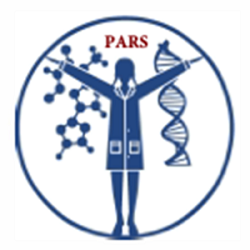
PARS
Ever wonder what an embryo look like as it develops? Want to know how the environment effects development and how clinicians treat patients with infertility? Want to gain research experience and network with scientists and doctors? If so, then you should apply to the Penn Academy for Reproductive Sciences (PARS)! We invite high school students (grades 10-12) who are interested in science and medicine, to apply. PARS will run 4 consecutive Saturdays (February 28, March 7, 14, and 21), from 9-1 each day at the University of Pennsylvania. Participants must be able to attend all four sessions of the workshop to apply. PARS is free and transit cards can be provided. Teachers are asked to complete a brief recommendation survey HERE. Find out more information on the curriculum and how to apply HERE. Deadline for applications is Jan. 9th.
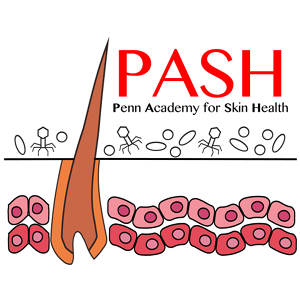
PASH
Are you interested in learning about what scientists and clinicians do in the field of dermatology? Want to gain experience conducting research in Penn laboratories? Are you a 10-12th grade Philadelphia public or charter school student? If so, the Penn Academy for Skin Health (PASH) is for you! PASH will run 4 consecutive Saturdays (February 28, March 7, 14, and 21, from 9-1 each day at the University of Pennsylvania. Participants must be able to attend all four sessions of the workshop to apply. PASH is free and transit cards can be provided. Teachers are asked to complete a brief recommendation survey HERE. Find out more information on the curriculum and how to apply HERE.
Deadline for applications is Jan. 9th. **Note this program is only open to Philadelphia public and charter school students. If you attend a private school or a school outside of Philadelphia, you can apply to PARS.
Project BioEYES
Are you a teacher, after-school or summer educator, or a homeschool parent and want your students to have the opportunity to become scientists? Check out our award-winning hands-on lessons in basic scientific methods, biology, genetics, and stem cells using live zebrafish! Join the over 100,000 students who experienced this unique classroom-based program today.
BioEYES is a K-12 science education program which provides classroom-based learning opportunities through the use of live zebrafish. BioEYES is designed to incorporate teacher empowerment and provides professional development seminars and a co-teaching experience with trained science consultants, called outreach educators. This program, currently in its 20th year, is free for Philadelphia public and charter schools and is available to Catholic, private, and suburban schools for a fee. Click the button below to learn more!
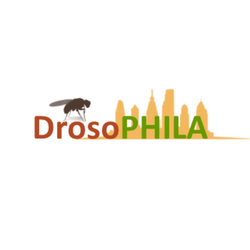
DrosoPHILA
Are you a Philadelphia high school biology teacher interested in collaborating on a brand new science curricula using fruit flies!? Developed in Dr. Bashaw’s lab and with four Philadelphia biology teachers, these inquiry-based modules can be used to engage students with hands-on biomedical science.
The program brings high school science teachers to the lab for six-week paid summer research position to learn about our work and to design curriculum for use in the classroom. Each unit encourages students to embrace critical-thinking skills as they work through experiments and draw their own conclusions. In the third lesson, students have the ability to engage with molecular biology techniques commonly used in the research community. Click the button below to learn more!



